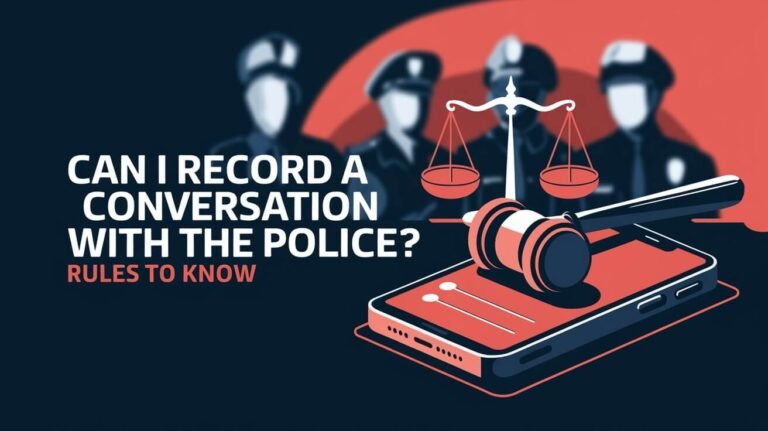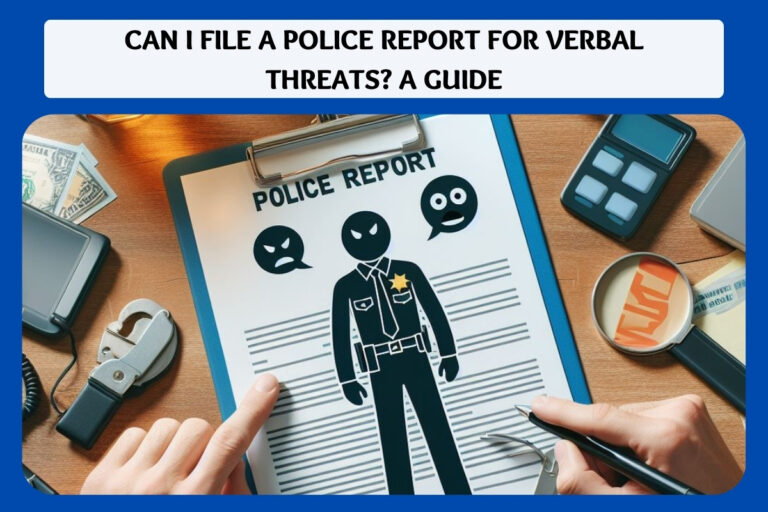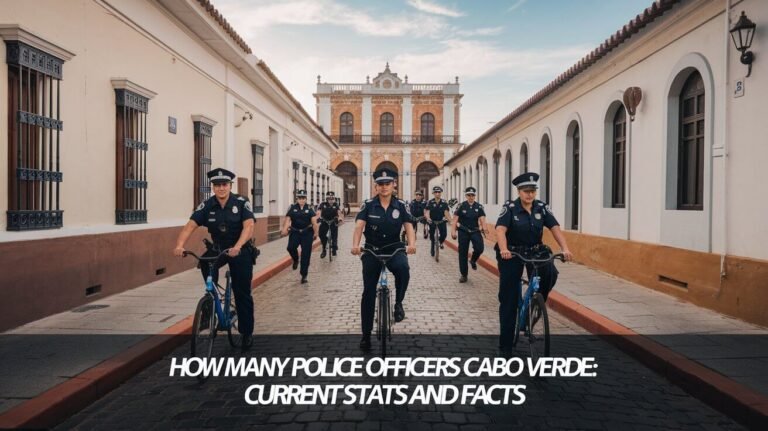Is It Illegal to Lie to Police? Consequences & Legal Risks

Lying to the police is illegal in many situations and can lead to serious consequences. This article explores the legal implications of providing false information to law enforcement, the types of lies that are considered criminal, and what you need to know to protect your rights.
When Lying to Police Becomes a Crime
Not every untruth told to a police officer is illegal. However, certain types of lies can land you in hot water. Here’s what you need to know:
Providing False Identification
One of the most common ways people get into trouble is by giving fake names or IDs to police. In most states, it’s a crime to:
- Give a false name during a traffic stop
- Show a fake driver’s license
- Provide someone else’s ID as your own
For example, if you’re pulled over and give your brother’s name to avoid a ticket, you could face charges for false identification.
Making False Reports of Crimes
Filing a false police report is another serious offense. This includes:
- Reporting a crime that didn’t happen
- Falsely accusing someone of a crime
- Exaggerating details of an actual incident
Let’s say you report your car stolen to collect insurance money when you actually sold it. That’s a false report and it’s illegal.
Lying During Criminal Investigations
Once a criminal investigation is underway, lying to police can be charged as obstruction of justice. This might involve:
- Denying knowledge of a crime
- Providing a false alibi for a suspect
- Hiding or destroying evidence
For instance, if you tell police you haven’t seen your friend in weeks when you know they’re hiding in your basement, that’s obstruction.
Perjury and False Statements Under Oath
While not always directly to police, lying under oath is a serious crime called perjury. This includes:
- False testimony in court
- Lies in sworn affidavits
- Dishonesty during depositions
Perjury charges can result from lying during any official proceeding, even if it’s not in a courtroom.
Consequences of Lying to Law Enforcement
The penalties for lying to police vary depending on the situation and jurisdiction. Here’s what you might face:
Criminal Penalties
Lying to police often results in misdemeanor charges, but some cases can be felonies. Potential consequences include:
- Fines ranging from hundreds to thousands of dollars
- Probation
- Jail time, from a few days to several years
In federal cases, lying to the FBI or other agencies can lead to up to 5 years in prison.
Long-Term Impact on Your Record
A conviction for lying to police can haunt you long after any jail time or fines. It can affect:
- Job prospects, especially in fields requiring background checks
- Professional licenses
- Housing applications
- Loan approvals
Having a criminal record for dishonesty can be a red flag in many situations.
Effects on Current and Future Legal Cases
If you’re caught lying to police, it can seriously damage your credibility in any related legal matters. This might mean:
- Prosecutors are less likely to offer plea deals
- Judges may be less lenient in sentencing
- Your testimony in court may be given less weight
Even in future, unrelated cases, a past conviction for lying to police can be used to challenge your truthfulness.
Why Do People Lie to the Police?
Understanding the motivations behind police deception can help prevent these risky situations. Common reasons include:
- Fear of getting in trouble
- Protecting friends or family
- Avoiding embarrassment
- Covering up other crimes
- Misunderstanding the situation
While these reasons might seem understandable, they don’t justify breaking the law by lying to police.
Your Rights When Interacting with Police
Knowing your rights can help you avoid the temptation to lie. Key points to remember:
The Right to Remain Silent
You have the right to stay silent when questioned by police. This means:
- You don’t have to answer incriminating questions
- You can politely decline to speak without a lawyer present
- Silence can’t be used against you in court
Instead of lying, simply say, “I don’t want to answer any questions without my lawyer present.”
When You’re Required to Identify Yourself
In some situations, you may need to provide your name and ID. This usually applies:
- During traffic stops
- If you’re suspected of a crime
- In states with “stop and identify” laws
Even then, you’re only required to give basic identifying information, not answer other questions.
Dealing with Police Questioning
If police want to question you:
- Stay calm and be polite
- Ask if you’re free to leave
- If not, ask for a lawyer
- Don’t volunteer information
- Remember that anything you say can be used against you
It’s better to say nothing than to lie and risk criminal charges.
What to Do If You’ve Lied to the Police
If you’ve already lied to the police, here are some steps to consider:
Immediate Steps to Take
- Stop talking to the police immediately
- Don’t try to “fix” the lie with more lies
- Write down everything you remember about the interaction
Seeking Legal Counsel
Contact a criminal defense attorney as soon as possible. They can help:
- Assess the seriousness of the situation
- Advise on whether to correct the lie
- Represent you if charges are filed
Potential Defenses
Depending on the circumstances, defenses might include:
- Lack of intent to mislead
- Genuine mistake or misunderstanding
- Coercion or duress
An experienced lawyer can determine the best strategy for your situation.
How Police Detect Lies
Law enforcement uses various techniques to spot deception:
- Behavioral cues like body language and eye contact
- Inconsistencies in stories
- Fact-checking against other evidence
- Interrogation tactics designed to reveal lies
While not foolproof, these methods often reveal when someone’s being dishonest.
The Ethics of Police Deception
Interestingly, police are often allowed to lie during investigations. This includes:
- Undercover operations
- Claiming to have evidence they don’t actually possess
- Making false promises during interrogations
While controversial, courts have generally upheld these tactics as legal.
High-Profile Cases Involving Lies to Police
Several famous cases highlight the dangers of lying to law enforcement:
- Martha Stewart’s conviction for lying about stock sales
- The Jussie Smollett case involving a false hate crime report
- Lance Armstrong’s years of deception about doping
These cases show that even powerful or famous individuals can face serious consequences for dishonesty with police.
State-Specific Laws on Lying to Police
While most states criminalize lying to police in some form, the details vary:
- Some states have specific “false information to police” statutes
- Others prosecute under broader obstruction of justice laws
- Penalties can range from minor misdemeanors to serious felonies
It’s important to know the laws in your specific state.
Tips for Interacting with Law Enforcement
To avoid problems when dealing with police:
- Stay calm and respectful
- Know your rights, including the right to remain silent
- Don’t consent to searches without a warrant
- Ask if you’re free to leave
- Request a lawyer if you’re being detained or arrested
Remember, it’s always better to say nothing than to lie.
The Impact of False Statements on Investigations
Lying to police doesn’t just put you at risk; it can have serious consequences for others:
- Wasted police resources
- Wrongful arrests or convictions
- Delayed justice for actual victims
By being truthful (or remaining silent), you help ensure the justice system works as it should.
Educating the Public on Police Interactions
Many communities are working to improve police-citizen relations through:
- Know Your Rights workshops
- Community policing initiatives
- Youth education programs
These efforts aim to reduce misunderstandings and prevent unnecessary conflicts with law enforcement.
Conclusion: Honesty is the Best Policy with Police
Lying to the police is not only illegal in many situations, but it’s also risky and potentially harmful to yourself and others. While it might seem tempting to bend the truth when dealing with law enforcement, the potential consequences far outweigh any short-term benefits. By understanding your rights, staying calm, and seeking legal help when needed, you can navigate police interactions without resorting to dishonesty. Remember, in most cases, you have the right to remain silent – use it wisely instead of lying.






